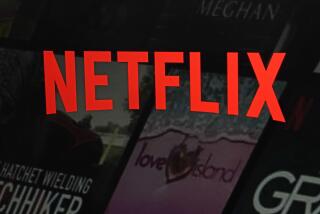Couch potato 2.0
SPOILER ALERT: 20th Century Fox Television and Netflix Inc. are throwing a few plot twists into the Hollywood business story. The former defied convention Tuesday by releasing a DVD of the opening episodes of the popular show “24” only about 12 hours after they aired. The latter -- a DVD rental service that takes orders online but delivers by mail -- is starting to let subscribers watch movies and TV episodes over the Internet.
These developments illustrate at least two things about the state of play in Hollywood these days. First, barely a week goes by without someone experimenting with a new way to distribute videos. And second, those experiments don’t yet live up to the promise of the Digital Age, which is enabling people to watch whatever they want, whenever and wherever they wish.
The approaches of Netflix and Fox show how two pillars of the California economy -- the entertainment industry and the technology industry -- approach this problem from different angles. Curiously, or perhaps predictably, Hollywood’s obstacles are mostly technological; Silicon Valley’s are mostly contractual.
Fox has been making downloadable versions of each “24” episode available through Apple’s iTunes store the day after they air. So why bother with discs when the shows are available on demand to anyone with a high-speed Internet connection? Because even “24” aficionados, who tend to be more tech-savvy and gadget-friendly than the typical TV viewer, have trouble displaying downloaded programs on a TV set instead of a computer monitor. That may just be a temporary problem, but it’s likely to be a limitation for years to come.
Netflix, meanwhile, is heading in the opposite direction. It is gradually introducing a service that gives subscribers access to an online film library, letting them watch a limited number of movies online at no extra charge. The goal is to make the company’s huge collection of films available to any device that can connect to the Internet, including cellphones and laptops.
The main challenge for Netflix is the maze of contracts and restrictions that prevent the company from streaming new releases to subscribers. The studios have held back their movies from subscription services to protect DVD sales, which have high profit margins. They also have exclusive contracts with other subscription services that prevent most of Netflix’s library from appearing in its online selections. As a result, most of the movies on the service are a few years removed from the multiplexes.
How quickly the public gets to the nirvana of anywhere/anytime entertainment will depend on how long it takes engineers to connect the Internet to TV sets -- and how willing the studios are to replace plastic discs that they find profitable and convenient with digital bits that, so far, are neither.
More to Read
The biggest entertainment stories
Get our big stories about Hollywood, film, television, music, arts, culture and more right in your inbox as soon as they publish.
You may occasionally receive promotional content from the Los Angeles Times.










